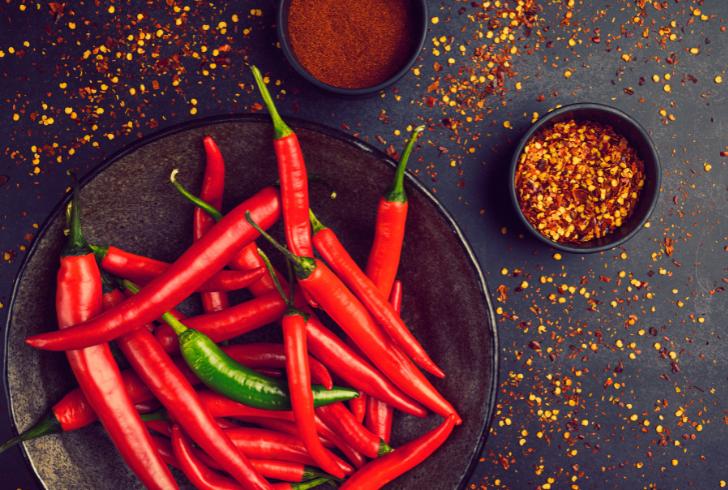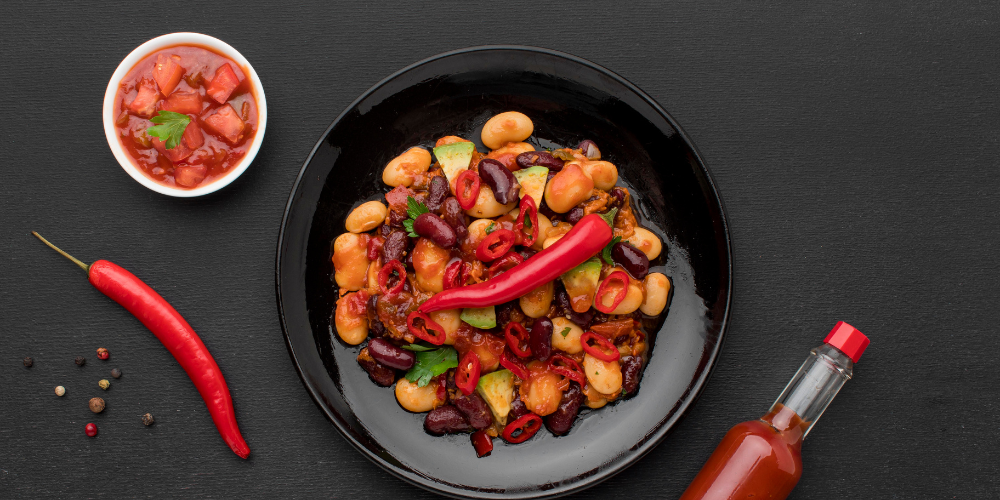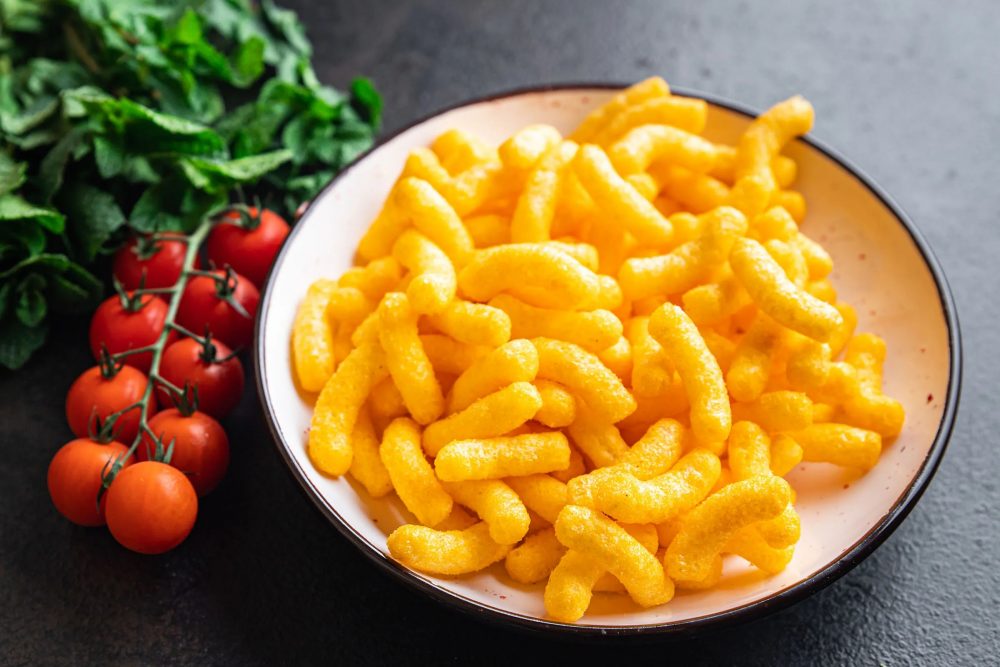Spicy food often brings heat to the table, but research suggests it may also influence how much people eat. A recent study tested meals like beef chili and chicken tikka masala seasoned with different amounts of sweet and hot paprika.
When the dishes reached a moderate spice level, participants ate more slowly and ended up consuming between 11% and 18% less food. Importantly, they didn’t feel less satisfied. The results point to a simple yet effective way to support portion control without sacrificing flavor.
Paige Cunningham, PhD, the lead researcher at Pennsylvania State University, explained that the only change made was the amount of hot paprika. Even a small adjustment, she said, was enough to reduce energy intake in participants.
Interestingly, water intake remained consistent across all groups. This means the reduced food intake wasn’t due to extra fluids but the effect of spice itself. Cunningham noted that adding chili pepper to meals—without making them unpleasant—may encourage people to eat less while still enjoying every bite.
Can Chili Peppers Support Weight Loss?

Freepik | Jana Ohajdova | Chili peppers’ hot compound, capsaicin, is often studied for its weight management potential.
The heat in chili peppers comes from capsaicin, a compound often linked to potential weight management. Some supplements market it as a fat-burning or appetite-controlling aid. While capsaicin does have measurable effects, the impact remains modest for long-term weight loss.
John “Wesley” McWhorter, DrPH, RD, a dietitian and spokesperson for the Academy of Nutrition and Dietetics, explained that capsaicin also provides anti-inflammatory benefits. These effects could help lower the risk of certain chronic diseases. At the same time, capsaicin may trigger thermogenesis, a process where the body burns extra calories by generating heat.
Even with those benefits, studies show the overall influence on body weight remains small. It may help metabolism in the short run, but relying on chili peppers alone will not bring lasting weight changes.
Who Should Limit Spicy Foods?
Not everyone can comfortably handle spicy meals. For people with acid reflux, inflammatory bowel disease (IBD), or celiac disease, hot peppers may worsen symptoms.
Emma M. Laing, PhD, RDN, a clinical professor at the University of Georgia, noted that those who experience chest pain, heart palpitations, shortness of breath, or allergic reactions after eating spicy food should avoid it.
While spicy meals offer antioxidant and anti-inflammatory perks, people who can’t tolerate them can still achieve strong nutrition with other foods. Laing emphasized that a balanced diet filled with fruits, vegetables, proteins, whole grains, and healthy fats provides the essential nutrients needed to support long-term health. Variety, she said, makes a bigger impact than any single ingredient.
Eating Slowly Without the Spice

Freepik | Drazen Zigic | To prevent overeating, eating slowly maximizes mouth exposure, giving the brain and gut time to signal fullness.
For those who can’t handle chili heat, slowing down meals offers another way to prevent overeating. Cunningham highlighted that eating slowly gives food more time in the mouth. This longer exposure helps signal both the brain and gut that fullness is approaching, which reduces intake naturally.
Simple habits can encourage slower eating. Having a conversation during lunch instead of scrolling on a phone can make meals last longer. McWhorter added that even taking fewer bites during a meal could reduce daily intake by about 100 calories. These small changes, when repeated, can add up over time.
A Flavorful Path to Health
Spicy foods may not be a magic solution for weight loss, but they can support healthier habits. By making meals more enjoyable and encouraging slower eating, they help reduce overeating without leaving people unsatisfied. Capsaicin—the compound that gives chili peppers their heat—may also aid metabolism and help manage inflammation, making spice a valuable addition to many diets.
Eating spicy food should always align with personal comfort levels, but for those who enjoy it, spice can be a useful tool. When combined with mindful eating, balanced nutrition, and regular activity, it can play a small but meaningful role in long-term wellness. In this way, adding spice to meals offers more than flavor—it becomes one ingredient in the recipe for a healthier life.




